Sovereignty at the heart of the Voice
Firebrand senator Lidia Thorpe has exposed the voice as just a step towards full black sovereignty.
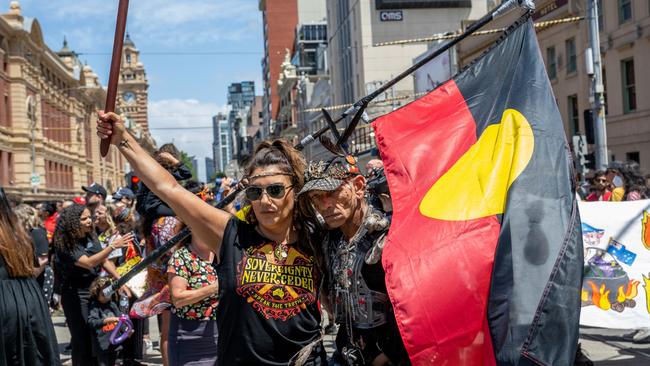
When it comes to black sovereignty, the only differences between Thorpe, on the one hand, and key members of the voice movement embedded in and advising the Albanese government, are tone, timing and subterfuge. Thorpe is brash. She doesn’t do subterfuge. And she is impatient.
But it would be a grave mistake to treat Thorpe as a fringe-dwelling maverick, or to treat the black sovereignty movement as merely a far-left analogue of the far-right “sovereign citizen” brigade. It is now becoming clear that core claims to sovereignty made by Thorpe’s Black Sovereignty Movement are shared by key figures who have been central to the drafting of the words of the Albanese Amendment and to whom the government has outsourced its legal advice on the voice.
So much so that the words of the Albanese Amendment and the practical operation of the voice are little more than the appealing bait hiding the hook of Indigenous sovereignty. Ordinary Australians certainly have not been told this was likely and don’t realise it’s happening. It is also possible that while Albanese is very good at slogans about the voice, he has little understanding of the substance of how the voice – and his proposed words – are integral to securing black sovereignty.
We should have known, of course. The Uluru Statement from the Heart says Indigenous “sovereignty has never been ceded or extinguished and co-exists with the sovereignty of the crown”. That same Statement from the Heart, according to Professor Gabrielle Appleby at the UNSW Indigenous Law Centre, proposes “an important reordering of the hierarchy of the state” and a “transformation in Australia’s established constitutional institutions”.
Unwisely, we paid no attention to the radical language in the Uluru Statement that reflects a long campaign for black sovereignty. Securing sovereignty depends, first and foremost, on entrenching the necessary constitutional machinery – a voice.
Instead, many Australians have been seduced by the soaring rhetoric of the Uluru Statement and misleading claims that this is a hand-holding exercise between black and white Australians, and a modest request for Indigenous people to be heard.
Closing the Gap has become an emotive cloak for upending our current system of governance and replacing it with a new constitutional deal of two peoples in one country with co-sovereignty governance structures.
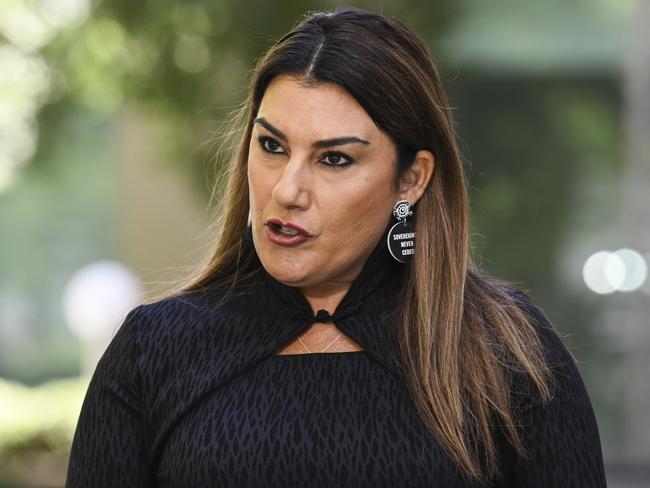
Only a week after Thorpe was shouting about black sovereignty to cameras on Australia Day, and demanding assurances the voice would not affect Indigenous claims to sovereignty, the Constitutional Expert Group – to whom the government has delegated the task of giving legal advice on the voice – quietly gave Thorpe the confirmation that black sovereignty is not ceded by the voice. A few days later, the Prime Minister said the same thing.
In other words, establishment voices on the Yes side are on side with Thorpe’s claims that black sovereignty has not been ceded.
Professor George Williams, for example, has stridently rejected claims that Aboriginal sovereignty cannot be recognised in Australia. “Sovereignty for Aboriginal peoples” would “make us stronger,” he has said. Professor Megan Davis, who together with Appleby, leads the Indigenous Law Centre at the University of NSW, and drafted proposed language which formed the model for the Albanese Amendment, has similarly said that “the Australian legal system is a system that was received from the Imperial British Crown. Aboriginal people have never consented nor ceded. Sovereignty did not pass from Aboriginal people to the settlers.”
Like critical race theory, the intellectual foundation for the black sovereignty movement in Australia came from universities, academics and influential research centres, such as the Indigenous Law Centre at UNSW. While Thorpe fronts cameras, and inhabitants of the Tent Embassy outside Parliament House are doing it their way, a long and focused academic industry has quietly and painstaking laid claim to black sovereignty through academic papers.
Claims that the voice has nothing to do with sovereignty are nonsense. The voice is the necessary precursor to securing black sovereignty. Moreover, the influence of black sovereignty academics is reflected in the wording of the Albanese Amendment, which, in turn, lays the groundwork for joint sovereignty of the country over all policy areas, because all policy areas affect Indigenous people in some way, just as the same policies affect non-Indigenous Australians. Representative democracy is set to be displaced by the new constitutional arrangements sought in the Uluru Statement.
Given that the PM has not explained the legal implications of the voice, he will run a mile from demands to explain the legal implications of black sovereignty. Yet we are entitled to very detailed legal and practical explanations from the Prime Minister of what flows from co-sovereignty.
We now know enough to be certain that this is no “modest” proposal, no “polite” request for consultation but rather the commencement of a long road to co-sovereignty. Black sovereignty academics cite approvingly the Declaration of Indigenous Rights (which Australia has not ratified) as a guide to what flows from self-determination: it includes, but is far from limited to, maintaining their own separate legal systems, living by their own customs, and establishing their own education systems.
This is not the road to reconciliation but to separatism.
If you doubt the radical nature of black sovereignty theory embedded in Australian academe, and its dependence on entrenching a race-based constitutional voice, you need only read the latest blueprint laid down by Appleby. Why read this? Because the fingerprints of Appleby, along with Davis and other members of the Constitutional Expert Group, are all over the Albanese Amendment.
In their article Voice versus Rights: The First Nations Voice and the Australian Constitutional Legitimacy Crisis, published last month in the UNSW Law Journal, Appleby and two other academics from the ANU College of Law describe different types of black sovereignty, from political to spiritual. They acknowledge the challenges of reconciling competing claims of sovereignty. This leads them to describe what they call a “constitutional legitimacy crisis”.
To address this crisis, they say that “part of the potential strength of the voice model is its deferral, in the short term, of direct questions about sovereignty, and its setting up of a process by which the relationship of settler and Indigenous sovereignties may instead be worked out over time.”
Viewed this way, the voice is the single most important mechanism for negotiating the rights of competing sovereignties over time. It is designed to entrench and negotiate a form of co-governance while simultaneously allowing the voice to continue to be disguised as a “modest proposal”. Instead, the reconciliation project is, as the ABC’s Indigenous affairs reporter Bridget Brennan said on Insiders last year, about transferring power. The voice, she said, needs to be “feared and revered”.
Once you understand the core purpose of the voice is about power and sovereignty, it becomes obvious why the voice, as drafted in the Albanese Amendment, is so radical in its language and why all attempts to adopt moderate or mid-course options have been eschewed. It also explains why the last thing voice activists and the Albanese government want is a full and frank debate about the details of this body, or about the next stage of securing sovereignty.
For example, it is integral to claims of black sovereignty that the voice has constitutional power to comment on all matters “relating to” Indigenous persons, not, as we were promised, matters “relating only”, or even “primarily”, to Indigenous persons, let alone to laws proposed to be passed under the “race power” contained in the Constitution.
Any such limits would not allow the kind of sweeping co-governance that Indigenous sovereignty activists seek. The pursuit of black sovereignty also explains why the voice is not merely a voice to parliament, as we were once also promised, but a voice to the executive government as well. Likewise, black sovereignty explains why the drafters of the proposed voice wording have resisted the inclusion of any protective or limiting language which would ensure the non-justiciability we were once promised. Leverage through the courts is a critical aid to extracting the ability to negotiate competing claims of sovereignty.
This objective of co-governance also explains why the voice has to be permanently enshrined in the Constitution, not time-limited or linked to the achievement of objectives of removing disadvantage. The voice is not intended to be merely a special measure intended to last as long as disadvantage lasts. The voice is the critical constitutional machinery to demand and negotiate permanent joint sovereignty.
Thorpe is the worst nightmare for the Yes proponents. Her departure blows a hole the size of Uluru right through claims from Yes advocates that the voice is a modest matter of polite manners. Her departure encourages us to dig deeper and, in so doing, better understand that black sovereignty sits at the heart of the voice proposal. This is not about reconciliation. This is separatism, pure and simple, and to be writ large in law.


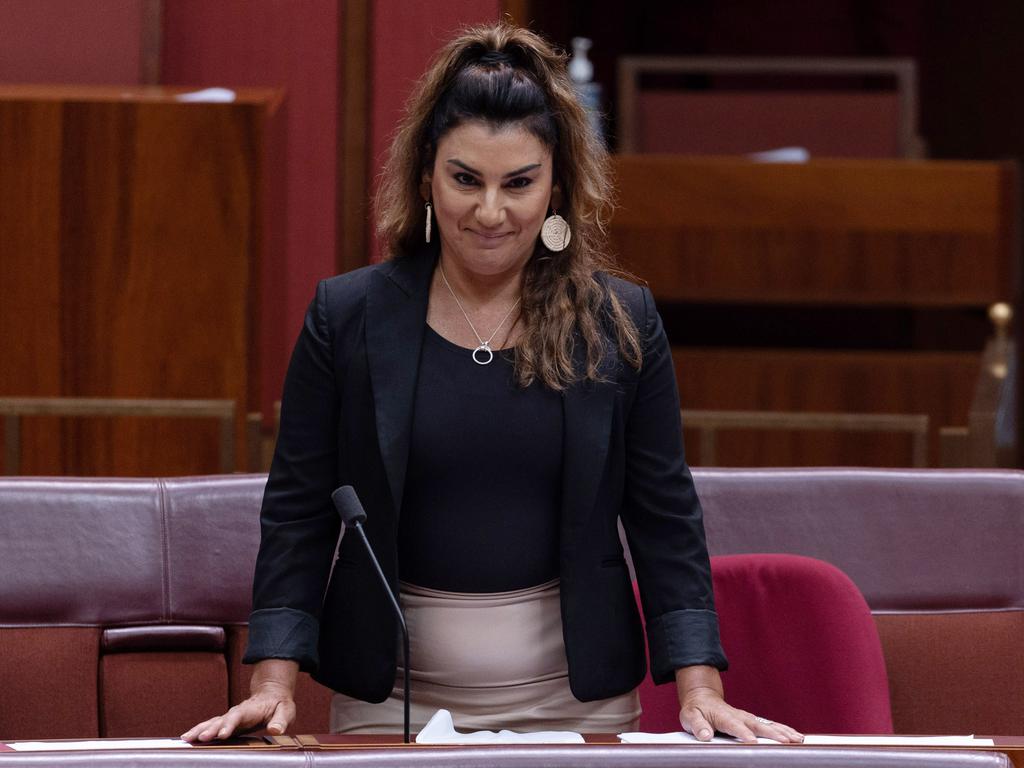
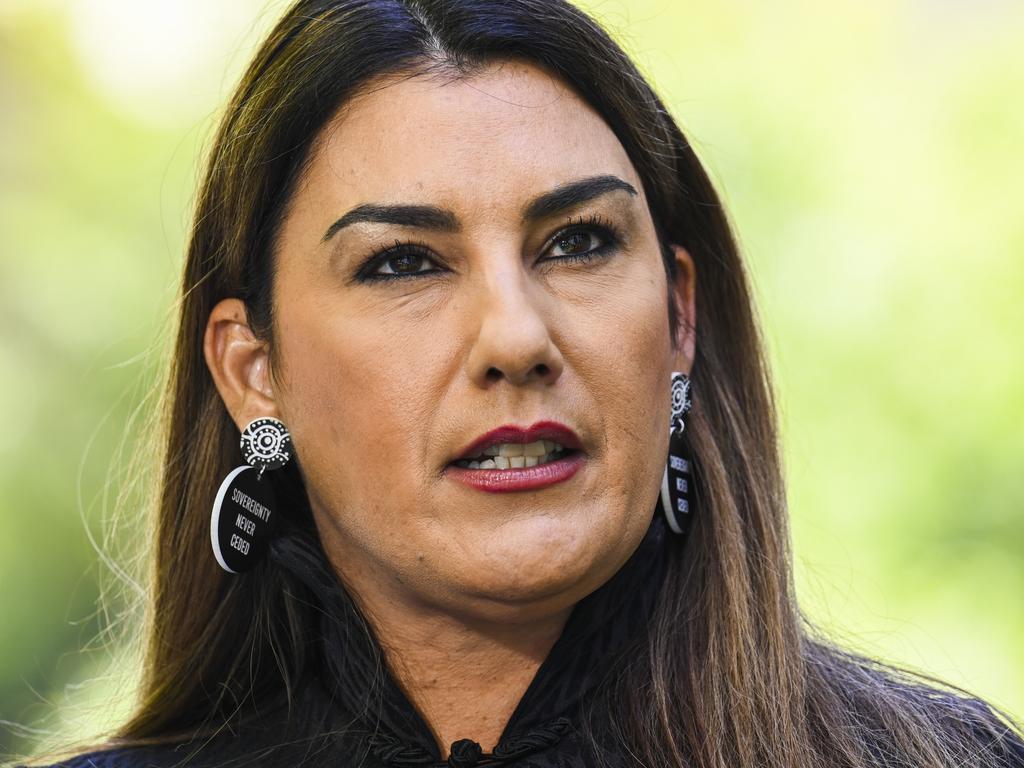
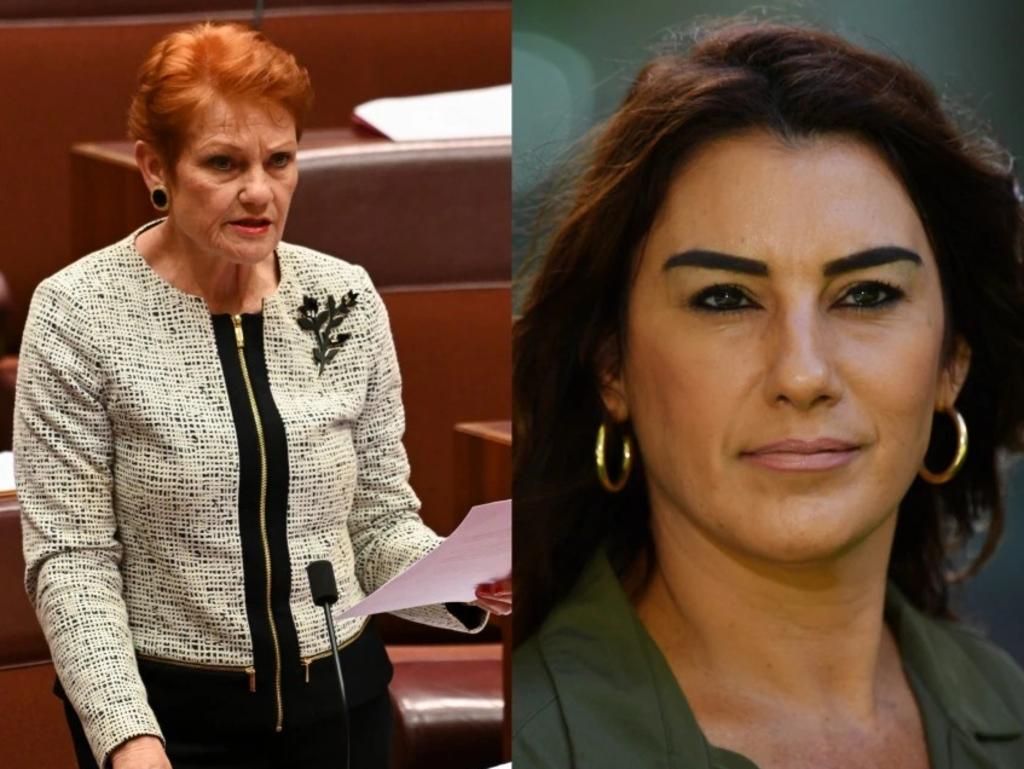


While much of the progressive media is downplaying Lidia Thorpe’s departure from the Greens – she will be irrelevant, they say; her departure makes it easier for the government, they say – these journalists would be practising their craft to a higher standard if they explored the full extent to which the black sovereignty movement has already infiltrated the government and infused the design of the voice.